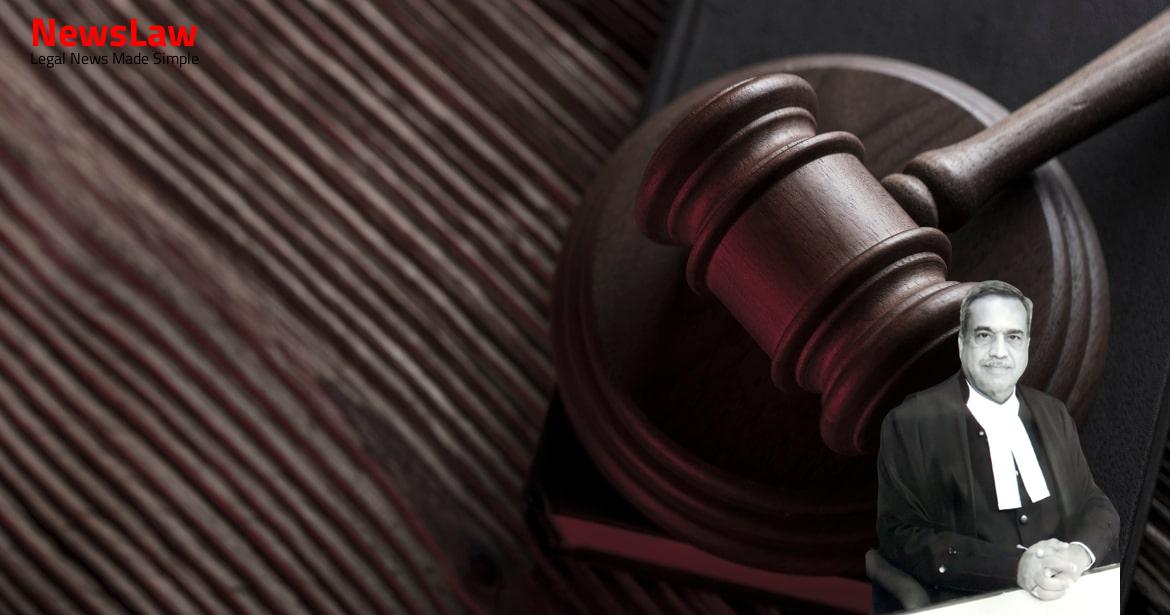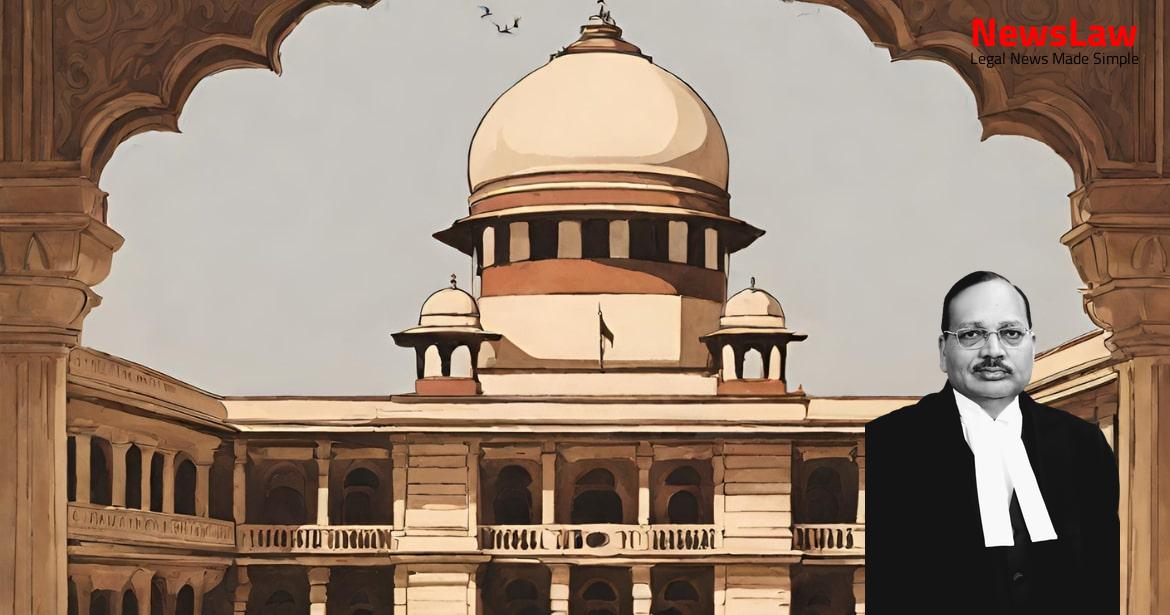In a recent legal case, the court delved into the significance of dying declarations in criminal proceedings, highlighting the intricate legal analysis involved. The credibility of such declarations, backed by medical evidence and independent witness testimonies, became pivotal in ascertaining the guilt of the accused. The court’s evaluation of multiple declarations and their alignment with established legal precedents shaped the outcome of the case, emphasizing the nuanced approach to evidentiary weight in criminal law.
Facts
- The Trial Court believed the dying declaration recorded by the Magistrate on 22.12.2011
- The defence put forth by the accused that the deceased poured kerosene on herself was deemed not believable based on medical evidence
- The High Court acquitted the accused mainly due to the existence of two dying declarations with a two-day gap between them
- The State has filed the present appeal against the High Court’s acquittal of the accused
- The accused initially denied the charges and appealed against the Trial Court’s conviction
- Prosecution collected statements from relevant witnesses and necessary evidence, including medical evidence.
- Prosecution examined 10 witnesses to prove the charge against the accused.
- Documentary evidence, including two dying declarations, was brought on record.
- Two dying declarations were presented, one by a police officer and the other by a Magistrate/SDM.
- One witness, PW-5, turned hostile during the proceedings.
Also Read: Ruling on Circumstantial Evidence in Murder Case
Arguments
- The petitioner argues that the High Court erred in not giving more weight to the dying declaration recorded by a competent Magistrate compared to the declaration made to an IO under Section 161 of Cr.PC.
- The petitioner cites various cases to support the argument that a dying declaration recorded by a Magistrate holds higher credibility.
- Contrary to the High Court’s observation that both dying declarations cannot be believed, the petitioner argues that convictions can be based solely on a dying declaration without corroborative evidence.
- The petitioner highlights the Trial Court’s cogent reasons for not giving weight to the statement made before the IO on 20.12.2011 and asserts that the High Court should have upheld the conviction based on the dying declaration recorded by the Magistrate/SDM on 22.12.2011.
- High Court acquitted the accused based on multiple dying declarations.
- The deceased committed suicide out of fear of her father-in-law as per the first dying declaration.
- The deceased was mentally weak as per the High Court’s observation.
- The High Court refused to rely on the dying declaration recorded by the Magistrate/SDM on 22.12.2011.
- The role assigned to respondent No.1 (father-in-law) in the first dying declaration was only of chasing her, not burning.
- The victim implicated all other family members in the second dying declaration.
Also Read: Challenging Legal Presumptions in Negotiable Instrument Cases
Analysis
- The High Court should not have disregarded the dying declaration of the deceased, as it was consistent with medical evidence.
- The deceased’s injuries suggested that someone poured kerosene on her from behind.
- The accused was named in the dying declaration, enhancing its credibility.
- The Magistrate was considered a reliable witness, with no bias or malice suspected in recording the declaration.
- The Trial Court rightly relied on the dying declaration, supported by the physician’s statement about the deceased’s condition.
- The High Court’s reasoning for not relying on the dying declaration by the Magistrate was deemed irrelevant.
- Contradictory statements were present in multiple dying declarations, but the consistent naming of the accused by the deceased reinforced the declaration.
- The medical evidence aligned with the dying declaration, further strengthening its credibility.
- There is no rule of law or prudence stating that a dying declaration needs corroboration to be acted upon.
- If the court is convinced that the dying declaration is truthful and voluntary, it can form the basis for conviction even without corroboration.
- Having multiple dying declarations does not automatically invalidate all declarations.
- The precedent set in the case of Munnu Raja & Anr. and Paniben V. State of Gujarat allows for a conviction based solely on a dying declaration.
- Dying declarations should be assessed on a case-by-case basis, taking into account the circumstances in which they were made.
- A dying declaration made in the presence of a competent Magistrate holds more weight than one based solely on oral testimony.
- The reliability of a dying declaration can be evaluated through factors like the dying person’s capacity to observe, remember, and the timing of the statement.
- Consistent dying declarations, supported by medical evidence, can lead to a conviction without additional corroboration.
- Previous cases like State of Uttar Pradesh V. Ram Sagar Yadav & Ors. and Ramawati Devi V. State of Bihar also support the validity of convictions solely based on dying declarations.
- Kushal Rao V. State of Bombay is a significant judgment emphasizing the evidentiary value of dying declarations.
- The High Court’s acquittal of the accused for the offences under Section 302 read with Section 34 of the IPC is unsustainable.
- The statements of the SDM and the physician, as independent witnesses, supported the prosecution case.
- The dying declaration recorded by the SDM/Magistrate on 22.12.2011 holds weight in convicting the accused.
- The High Court’s decision to acquit the accused was a grave error.
Also Read: Legal Analysis Critique in High Court’s Quashing Order
Decision
- Appeal allowed and respondent nos. 1 & 2 held guilty for offences under Section 302 read with Section 34 of IPC
- Sentenced to life imprisonment and a fine of Rs.10,000/- each
- Accused to surrender for life sentence
- Impugned judgement acquitting accused is quashed and set aside
- Judgement of Trial Court convicting accused is restored
Case Title: STATE OF U.P. Vs. VEERPAL (2022 INSC 133)
Case Number: Crl.A. No.-000034-000034 / 2022



